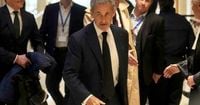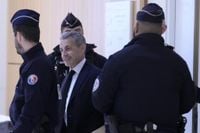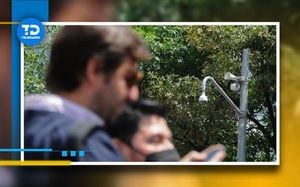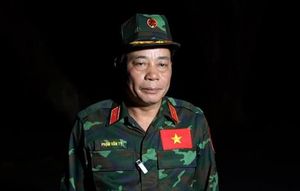French prosecutors have demanded a seven-year prison sentence for former President Nicolas Sarkozy, accusing him of receiving millions of euros from the late Libyan dictator Muammar Gaddafi to finance his 2007 presidential campaign. This high-profile case, which has captivated the public and legal observers alike, centers on allegations of illegal campaign financing, bribery, and corruption.
During a court session on March 27, 2025, prosecutors described the alleged financial arrangement between Sarkozy and Gaddafi as "incredible, unprecedented, obscene." They argue that Sarkozy not only accepted illicit funds but also agreed to bolster diplomatic and business ties between France and Libya in exchange for the money. This included a promise to review the case of Abdullah Senussi, a relative of Gaddafi who was convicted in absentia by a French court in 1999 for his involvement in a plane bombing that killed 170 people.
As the prosecution laid out its case, they sought not only prison time but also a fine of 300,000 euros for Sarkozy, who is now 70 years old. Furthermore, they requested that he be barred from holding public office for five years and stripped of certain civic rights. The severity of these demands highlights the gravity of the accusations against the former leader.
Sarkozy, who served as France's president from 2007 to 2012, has consistently denied any wrongdoing, claiming he is the victim of a politically motivated conspiracy. His legal team argues that the prosecution's case is fundamentally flawed. Outside the court, Sarkozy's lawyer, Christophe Ingrain, stated, "He is innocent," emphasizing their belief that the charges are baseless.
The trial has been ongoing since January, with prosecutors describing it as a case of "high-intensity corruption." They contend that Sarkozy's actions represent a corruption pact with one of the most notorious dictators in modern history. The financial prosecutor, Sebastien de La Touanne, characterized the allegations as a "frantic quest for funding" driven by Sarkozy's political ambitions.
According to the prosecution, the agreement between Sarkozy and Gaddafi involved cash payments delivered in suitcases. French-Lebanese businessman Ziad Takieddine testified that he transported several million euros in cash to Sarkozy's Ministry of the Interior shortly before the 2007 election. In return for these funds, Sarkozy allegedly promised to rehabilitate Libya’s international image and assist in Gaddafi's return to the global stage.
Prosecutors also highlighted a diary found in a suitcase belonging to Shukri Ghanem, Gaddafi's former prime minister, which allegedly details cash payments made to Sarkozy. They argue that this diary serves as a crucial piece of evidence linking Sarkozy directly to the corruption charges.
In addition to Sarkozy, several of his former associates are facing charges, including Claude Guéant, Sarkozy's former right-hand man, who prosecutors have recommended receive a six-year prison sentence and a fine of 100,000 euros. Former minister Brice Hortefeux is facing a proposed three-year sentence and a fine of 150,000 euros, while Éric Woerth, Sarkozy's former campaign finance chief, may be sentenced to one year in prison and required to pay 3,750 euros.
Despite the weight of the accusations, Sarkozy maintains that the case against him is a vendetta stemming from his role in leading the international coalition that helped topple Gaddafi in 2011. He has publicly criticized the prosecution's motives, stating that the allegations are intended to distract from the weakness of their case.
The trial is set to continue until April 8, 2025, with closing arguments expected to be presented shortly thereafter. A verdict is anticipated to follow, though the timeline remains uncertain.
This legal battle is not Sarkozy's first encounter with the judicial system. In 2021, he was convicted of corruption and influence peddling, receiving a three-year sentence, one year of which he is currently serving under house arrest with an electronic bracelet. He was also found guilty of fraud related to the financing of his unsuccessful 2012 re-election campaign, where his team allegedly overspent by nearly double the legal limit.
The outcome of this trial could have significant implications for Sarkozy's legacy and the future of his political career. With France's political landscape already volatile, the repercussions of this case may extend beyond the courtroom.
As the trial unfolds, observers are closely watching how the French judiciary will handle such serious allegations against a former head of state. The prosecution's request for a lengthy prison sentence underscores the gravity of the charges, and the case has already sparked widespread debate about corruption and accountability in political circles.
As Sarkozy prepares for his defense, the world waits to see if he can navigate this legal storm or if he will become the first former French president to serve significant time behind bars for corruption.







